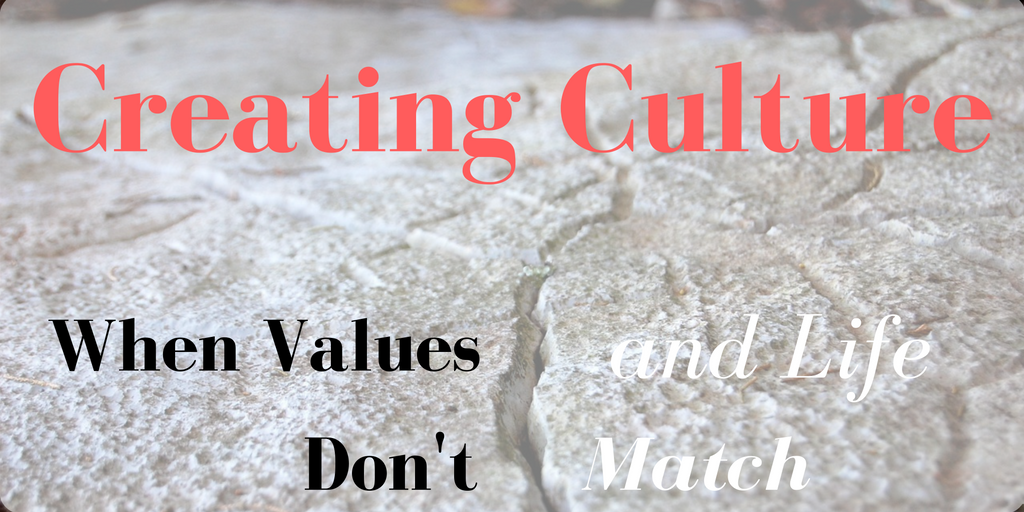Organizational culture powerfully determines the success or failure of a vision, the flourishing or demise of the human spirit. [1]
As part of a coaching process with a pastor of a large church in the southern United States, I asked Charlie to keep track of how she spent all of her waking hours. I encouraged her to write down how she spent every 30 minutes of her day for seven days. Daunted at first, Charlie set about this activity, and at the end of the week we analyzed her results. Our analysis revealed a glaring inconsistency.
Value Dissonance
While Charlie’s espoused values were centered in relationship and community, she spent 75% of her time answering emails, updating progress in the church’s project management system and creating media for Sunday services—all solo activities. Charlie’s espoused values didn’t match her lived values. The lack of integrity startled her. Something had to change.
[Tweet “Do your internal values coincide with your lived values? #LiveLikeYou”]
Charlie changed her work rhythms to include others even when she worked on emails. She and the staff created parallel work sessions for what normally would be solo activities. Everyone worked on their individual projects, but they did it together. She also invited new, emerging leaders into the project management process, which gave them time for mentoring.
Finally, she and the staff increased the hours they met but made them more strategic, using Patrick Lencioni’s model in Death By Meeting. These changes increased Charlie’s relational and communal time, demonstrating her espoused and lived values.
Organizational Cultures Are Created by Leaders
What leaders model, teach, pay attention to, measure and reward all play a part in creating culture. Reflecting on your church context and your leadership, what do you model, teach, pay attention to and measure?
A “time audit” similar to Charlie’s can help you assess if you’re forming the culture you intend and whether it matches your espoused values. For those of you forming new churches, remember, everything you do creates culture! And culture lasts. It becomes deeply rooted into the warp and woof of church life for decades to come. Therefore, be intentional about the culture you form.
[Tweet “Be intentional about the culture you form. ~Dr. Shelley Trebesch “]
Here’s an idea and some questions to consider: Conduct a seven-day time audit for a normal week. Write down what you do every half hour. At the end of the week, create specific categories for the way you spent your time—exercise, emails, social media, TV, video games, prayer, Bible reading, preparation, meetings (what type?), commuting, hygiene, household chores, meals, time with the family (doing what?), sleep, etc. Leaving out sleep time, assign percentages to your categories. Drawing a pie chart may provide a helpful visual.
Focusing on the percentages and categories, what do you observe?
– Does anything surprise you?
– Does the way you spend your time match your values?
– Does the way you spend your time match the values of the church?
– What are you modeling?
– Is there anything you want to change?
A Framework for Creating Culture
In our next blog post, we’ll explore Jesus’ counter culture, namely the way he taught and modeled his core values, and what he paid attention to. We’ll look at the way his life provides a framework for our own modeling, teaching and attention in order to create a flourishing culture.
The way Christ lived led to flourishing for those he encountered. Ultimately, we want those who encounter our churches to experience the same freedom and engagement.
Get Support for Building a Healthy Church Culture via V3 Planting Partnerships!
[1] Organizational culture can loosely be defined as the shared assumptions, beliefs and normal behaviors (norms) of a group. (See Made to Flourish: Beyond Quick Fixes to a Thriving Organization for more info.)
Share this Post

